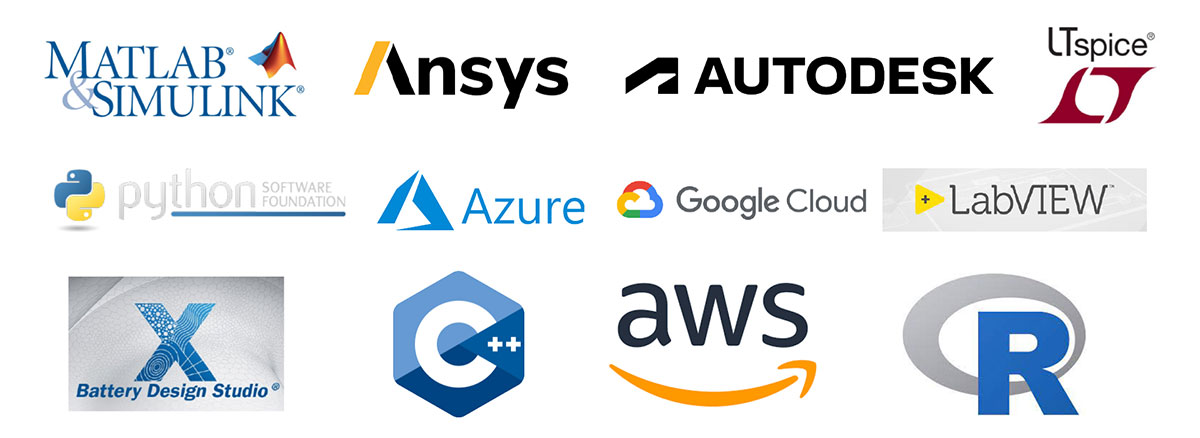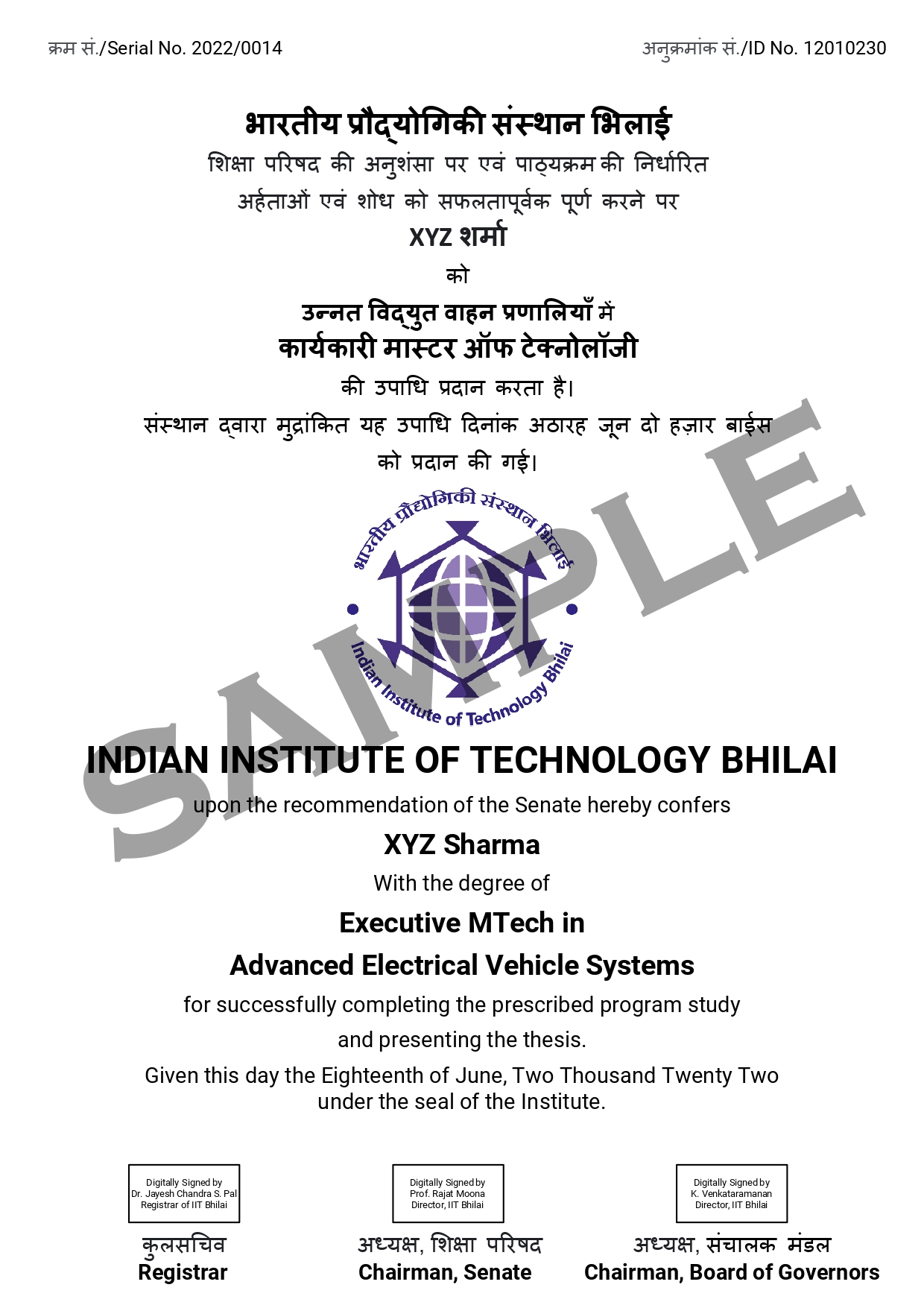Eligibility:
Minimum 2 years of relevant experience within the preceding
3 Years*.
Should have B.Tech. / B.E. / B.Sc. in relevant field
(minimum 4-year program) / M.S. or M.Sc. in relevant field
(minimum 2-year program) / M.C.A. (minimum 2-year program).
For the candidates applying based on the M.Sc./M.S./M.C.A.
degree, the undergraduate degree must be in a science or
engineering field.
In the qualifying
degree, at least 55% marks or a CGPA/CPI equivalent to 55%
marks. In case the candidate belongs to the SC, ST, or
Persons with Disability (PwD) category, this is relaxed to
50% marks or a CGPA/CPI equivalent to 50% marks. To be
eligible to apply for equivalency after the third semester,
the candidate must have scored the minimum marks in the
qualifying degree as specified in the eligibility criteria
of the regular M.Tech. program of IIT Bhilai.
*to be computed as per the last day for application submission
of this round.
Duration:
The nominal
duration of the Executive M.Tech. program will be 2 calendar
years / 4 semesters (online).
The nominal
duration of the Executive M.Tech. program with an
equivalency to the regular M.Tech. will be a 5 semesters (3
online, 2 offline). Please contact IIT Bhilai for further
details.


 Arun Kumar Verma
Arun Kumar Verma

 Abhinoy Kumar
Singh
Abhinoy Kumar
Singh  Kunwar Aditya
Kunwar Aditya  Nishant Kumar
Nishant Kumar 


